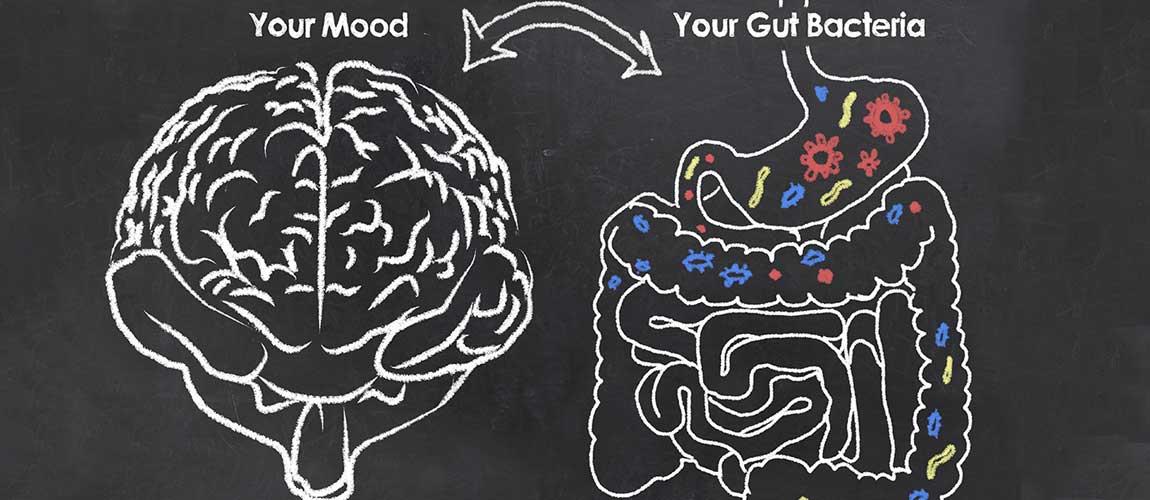Your digestive tract is an essential part of your body. We depend on our gut and intestinal flora to digest and absorb food as well as to get rid of waste products. However, there has been a great deal of research in the past few years regarding other, more surprising, roles that our gastrointestinal (GI) tract may play in our whole body health. Our GI tract affects every other system in the human body and is affected by them in return. New studies have found that even the brain has ways to communicate and receive communication from the gut.
The Circadian Rhythm of Your Digestive Tract
Our circadian rhythm tells our bodies when to perform a wide variety of tasks, including sleeping and eating. This central control is mainly governed by a clock in the hypothalamus of the brain, which is called the suprachiasmatic nucleus (SCN). When our retinas sense light, they pass messages to the suprachiasmatic nucleus to halt melatonin production and ramp up production of cortisol to keep us alert and energetic. Without light, the opposite happens and our bodies prepare for sleep.
However, this central clock is not the only timekeeper in our bodies. Each organ system and even some small groups of cells maintain their own circadian rhythms. The circadian rhythms of various systems in the body communicate with each other to coordinate their activities. This becomes especially complicated in the gut because the cells that maintain the digestive system include not just human cells, but a wide variety of bacteria. Our gastrointestinal flora, the 40 trillion or so tiny microbes that help us to digest food and produce vital nutrients, also keep their own circadian rhythms. They undergo cell division and become more active in the presence of food. They are even affected by melatonin, ramping up activity as the rest of our bodies prepare for sleep. In addition, they send biochemical signals to the brain in a complex back-and-forth communication channel.
The Gut-Brain Axis: Complex Connections Between the Gut and Brain
The communication between the gut and the brain, along with the effects of this communication, have been dubbed the gut-brain axis. This two-way signaling system allows our brains and our guts to coordinate important activities. These activities are related to much more than mere digestion and hunger. Gut flora can activate a stress response by stimulating the vagus nerve, which directly connects our brains and our intestines. In addition, gut bacteria produce so much melatonin that there is actually more of this hormone in our gastrointestinal tracts than in the pineal gland, where it is made and stored in the brain. Gut bacteria influence our brain, our hormonal balance, and thus our health in a variety of ways, many of which we are just beginning to understand.
While more study is needed in this area, throwing off the bacterial balance may have effects such as memory loss, anxiety and depression. The simple act of taking a probiotic can be helpful in conjunction with the treatment of complex psychiatric problems such as OCD. Our brains are dependent on cues from the gut, so an imbalance in microbes can have far-reaching negative effects.
Could Your Gut Flora Be Affecting Your Sleep?
 The role of your gut flora in maintaining a healthy circadian rhythm and sleep is one of the most surprising connections to have sprung from modern chronobiology studies We already knew that these bacteria are important players in health, synthesizing nutrients and helping to break food particles in our diets. However, new research is finding that your mental health, autoimmune activity, and, yes, even sleep may depend in part on having a health gastrointestinal tract.
The role of your gut flora in maintaining a healthy circadian rhythm and sleep is one of the most surprising connections to have sprung from modern chronobiology studies We already knew that these bacteria are important players in health, synthesizing nutrients and helping to break food particles in our diets. However, new research is finding that your mental health, autoimmune activity, and, yes, even sleep may depend in part on having a health gastrointestinal tract.
If you are having trouble sleeping, an imbalance in your gastrointestinal flora may be leading to a decrease in melatonin and thereby insomnia. Conversely, it is also possible that low melatonin production in your brain may be affecting your digestion in a variety of ways. In either case, taking either melatonin or a probiotic may be an answer.
Our bodies are not a bunch of unconnected parts, but rather a whole that functions in a synchronized way thanks to complex communication and interrelationships. Not only does our circadian rhythm affect every cell in our body, but it appears to also be affected by these cells in turn. Getting enough sleep and good nutrition, two simple and common recommendations may be more important to our whole body health than we previously could have imagined.

